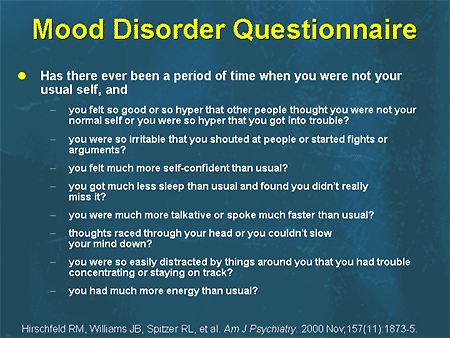Person left out
What to Do When You're Left Out - Etiquette
Insert knife. Twist gently to the left. Judith Sills, PhD, examines the painful business of being excluded and leaves nothing out.
By Judith Sills, PhD
Photo: Thinkstock
Last New Year's Eve my friends planned to gather for a couples pajama party. The richest member of our circle had just bought a really swell beach house—completely winterized—so everyone would be down and comfy amidst all the material splendor that four bedrooms, three fireplaces, and a full frontal display of the bay can provide. It was to be a grand party, and its only shortcoming was that I was not invited.
Ah, just like me to take that omission too personally, as a girlfriend of mine pointed out. Actually, neither my husband nor I was invited, so it's not as if I were singled out. I
felt singled out, however—singled out, left out, and knifed in the back.
My husband found this a remarkably passionate reaction to a missed pajama party, even one involving three fireplaces and "Auld Lang Syne." But he is socially tone-deaf and I am a Geiger counter.
For a while I dripped my furiously hurt feelings onto the shoulders of some of the lucky invitees, people I thought of as close friends. Seeing me in pain, they unanimously distanced themselves. They were powerless, they explained. Not in charge of the guest list. Felt bad themselves, but these things happen. We can't all be invited everywhere, now can we? Take it like a grown-up.
But being left out is not an inherently grown-up phenomenon. It is a grade-school agony that recurs throughout life. Being left out is an emotional drama that unfolds in three acts: discovery, distress, and, if you can get there, detachment. These psychological rhythms prevail whether you are reeling from the whispers of a group of girls at recess or excluded from a bridge game in your assisted-living home. Being left out is the dark side of friendship, and most of us have been both victims and perpetrators.
Being left out is the dark side of friendship, and most of us have been both victims and perpetrators.
In my most recent experience as a victim, I moved beyond my ineffective initial outcry to the common fallback—retreat. I withdrew to brood and waited to see which of my friends would care enough to inquire further about my feelings. Several did, which launched our entire friendship group into the emotionally absorbing business of speculating on motive.
I cannot say for sure how many phone calls were required to establish cause; as the victim, I missed the juiciest speculations as to how I had given offense. Eventually, the group consensus was reported to me. I had likely insulted the party host, went the theory. I had been a confidante of his wife during a time of their marital upheaval, and she had probably reported my criticisms of him. When the now reconciled host and hostess conferred on the guest list, my omission was one of the new things on which they could agree.
Never mind that I had no memory of any such criticisms and that we had all been confidantes of the wife, whose misery at the time was very public. The group was comfortable with this explanation and so it became fact. If I disputed giving offense, I appeared defensive; if I acknowledged the possibility, I appeared to deserve my punishment.
The group was comfortable with this explanation and so it became fact. If I disputed giving offense, I appeared defensive; if I acknowledged the possibility, I appeared to deserve my punishment.
It is this vulnerability before the social lash that makes being left out so bitter. Yes, you are missing the party, but that is usually the least of your losses. What cuts is that you have been wounded and your friends stand by observing the assault, discussing what you might have done to provoke it. Even if they agree that you were innocent, they are unlikely to defend you. It is, they imply, not their business and, most of all, not their problem. It is, after all, only a pajama party.
Perfectly, indisputably true—which is why neither you nor I would press a friend to intervene in so small a matter. Yet this absence of loyalty was so unattractive that good friends felt compelled to explain to me why they had chosen it, citing social obligations, marital conflict, or business relationships as their reasons for participating with a smile.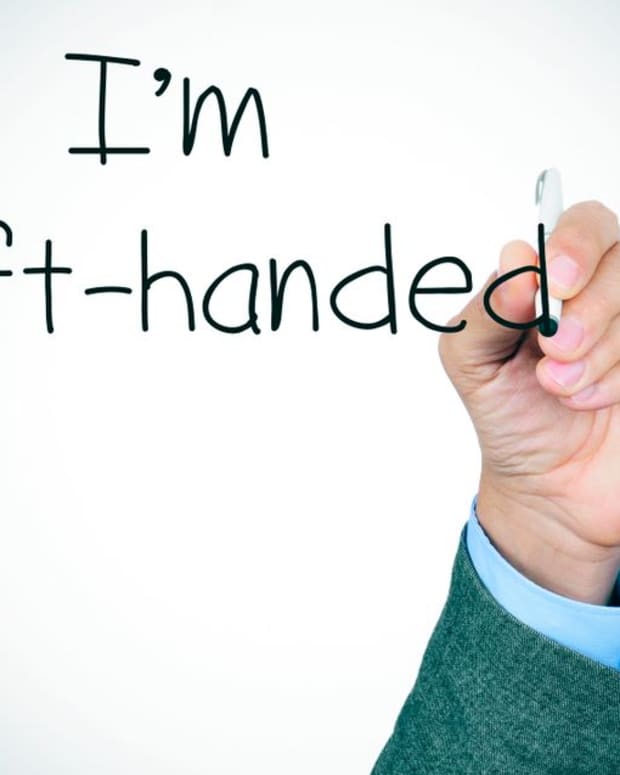 I outwardly agreed with their decisions, all the while feeling callously abandoned.
I outwardly agreed with their decisions, all the while feeling callously abandoned.
Exclusion hurts so much because it forces us to face the firm boundaries of self-interest that lurk beneath the surface of even the warmest friendship. If home is where, when you go there, "they have to take you in," then friendship is where, when you can't go there, your friend might cheerfully go without you. That realization of being excluded can leave scars—but they don't have to be permanent.
It's best they not be because inclusion and exclusion, sharing attention with others in your social circle, and respecting boundaries are issues in the strongest friendships. Part of what some people experience as exclusion is really only the normal balancing of attention that multiple friendships require. Extremely sensitive (or especially controlling) people, who suffer whenever they are not a part of every party, hold their friends hostage to their hurt feelings. ("We have to ask Jane to lunch, too. You know how she'll carry on if she hears about it.") In the long run, though, these demanding souls cost themselves friendships.
You know how she'll carry on if she hears about it.") In the long run, though, these demanding souls cost themselves friendships.
By adulthood, most of us develop a fairly high tolerance for sharing the affection and attention of our friends. We only feel left out when we are excluded in a pointed way. And even that sharp psychic jab does not have to cause permanent damage to your friendship network, though it certainly can test it for a time.
Exclusion is a part of life in any group. Human beings are pack animals, and it is in the nature of the pack to create cohesiveness by establishing a common enemy. That's why countries pull together during wartime and why little girls spend so many hours at a sleepover ripping apart the classmate who didn't get invited. In the politics of my friendship group, it was simply my turn.
I also considered the fact that, over the course of a lifetime, it has been my turn to be temporarily banished more than once, while some people never seem to sit one out.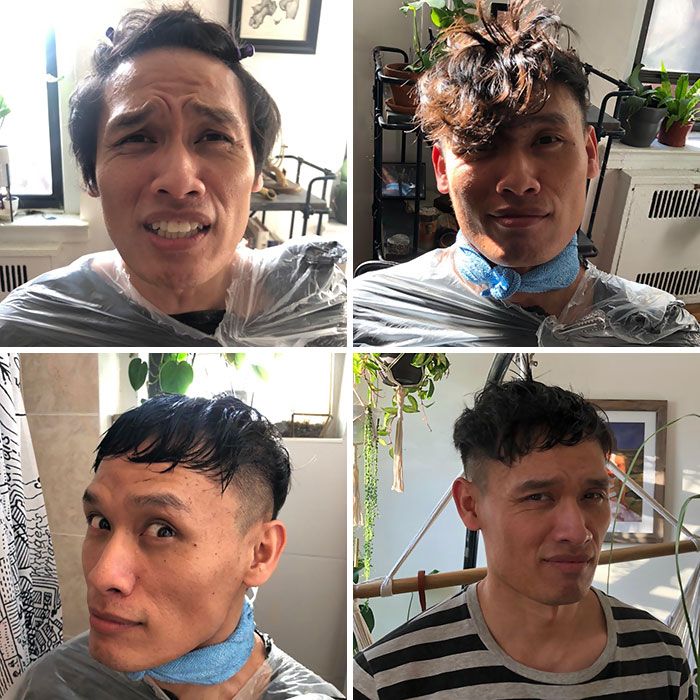 Groups may tend to draw closer together by excluding someone, but some of us are more likely than others to be chosen as that someone. I needed to consider my part in creating my sporadic social exile.
Groups may tend to draw closer together by excluding someone, but some of us are more likely than others to be chosen as that someone. I needed to consider my part in creating my sporadic social exile.
It didn't take much reflection. The thing is, if you're looking for someone who occasionally offends, well, that would be me. I can get an I-refuse-to-look-the-other-way smugness that has sometimes caused those who exercise social power to kick me right back—maybe even deservedly so. It's possible I did wince too openly in the presence of my friend's angry marriage. I broke the very common agreement among friends to never publicly react to someone else's marriage.
Once I could see my part in things, it was easier to begin to detach from the drama. This mending was hastened one day by a whiff of my self-righteousness. I noticed that there was something weirdly gratifying about being left out. I was hurt, done to. That came with a social power of its own. People who wished to maintain a relationship with me needed to attend to my feelings. There was maneuvering and inquiring on my behalf. One day I found that I was enjoying my role as the injured one. That's when I caught on to myself and knew I had to let the whole thing go.
People who wished to maintain a relationship with me needed to attend to my feelings. There was maneuvering and inquiring on my behalf. One day I found that I was enjoying my role as the injured one. That's when I caught on to myself and knew I had to let the whole thing go.
You may be surprised to learn that the most healing thing I did was to apologize. Some weeks after the party I phoned the host and said I was sorry for anything I may have done that was harmful to his marriage. I did that because I was tired of "poor me, I got left out." My apology was met with many denials on his part and the assurance that what happened on New Year's Eve was merely a matter of limited space. Still, I felt marvelously free of my victim status the instant the phone call was complete.
Fortunately, I had other social circles and other invitations for New Year's Eve. That is the resource open to adults that weeping fifth graders do not have. When the cool crowd won't make room for you at the lunch table, you are left to sit alone. When the cool crowd leaves you out of a pajama party 30 years later, you can find a welcome in other cool crowds. It may take you some time, but they are out there.
When the cool crowd leaves you out of a pajama party 30 years later, you can find a welcome in other cool crowds. It may take you some time, but they are out there.
I was fortunate that my husband is so socially independent that he needed a detailed explanation before he could appreciate the slight. To him a pajama party is just a pajama party, not a vote on his self-worth. I can't tell you that his obliviousness to being left out changed my emotional truth, but it was an occasional relief to try it on for size.
Time passed and that always helps. Other dinners, parties, and phone calls were exchanged. I frequently cross paths with the couple who excluded us. We are always cordial. My husband and I are busy planning a fall football blowout and their names are on the list. I believe in detachment, I believe in repairing rips in the social fabric, and I am certain that I have moved on. But I have to admit I am having just a little trouble actually mailing them an invitation.
More on Friendship
- Why the "talking cure" really works
- The friendship detox: How to say goodbye (and good riddance!)
- Why do we keep frenemies in our lives?
From the August 2001 issue of O, The Oprah Magazine
NEXT STORY
What to Do When You're Left Out - Etiquette
Insert knife. Twist gently to the left. Judith Sills, PhD, examines the painful business of being excluded and leaves nothing out.
By Judith Sills, PhD
Photo: Thinkstock
Last New Year's Eve my friends planned to gather for a couples pajama party. The richest member of our circle had just bought a really swell beach house—completely winterized—so everyone would be down and comfy amidst all the material splendor that four bedrooms, three fireplaces, and a full frontal display of the bay can provide. It was to be a grand party, and its only shortcoming was that I was not invited.
Ah, just like me to take that omission too personally, as a girlfriend of mine pointed out. Actually, neither my husband nor I was invited, so it's not as if I were singled out. I felt singled out, however—singled out, left out, and knifed in the back.
My husband found this a remarkably passionate reaction to a missed pajama party, even one involving three fireplaces and "Auld Lang Syne." But he is socially tone-deaf and I am a Geiger counter.
For a while I dripped my furiously hurt feelings onto the shoulders of some of the lucky invitees, people I thought of as close friends. Seeing me in pain, they unanimously distanced themselves. They were powerless, they explained. Not in charge of the guest list. Felt bad themselves, but these things happen. We can't all be invited everywhere, now can we? Take it like a grown-up.
But being left out is not an inherently grown-up phenomenon. It is a grade-school agony that recurs throughout life. Being left out is an emotional drama that unfolds in three acts: discovery, distress, and, if you can get there, detachment. These psychological rhythms prevail whether you are reeling from the whispers of a group of girls at recess or excluded from a bridge game in your assisted-living home. Being left out is the dark side of friendship, and most of us have been both victims and perpetrators.
These psychological rhythms prevail whether you are reeling from the whispers of a group of girls at recess or excluded from a bridge game in your assisted-living home. Being left out is the dark side of friendship, and most of us have been both victims and perpetrators.
In my most recent experience as a victim, I moved beyond my ineffective initial outcry to the common fallback—retreat. I withdrew to brood and waited to see which of my friends would care enough to inquire further about my feelings. Several did, which launched our entire friendship group into the emotionally absorbing business of speculating on motive.
I cannot say for sure how many phone calls were required to establish cause; as the victim, I missed the juiciest speculations as to how I had given offense. Eventually, the group consensus was reported to me. I had likely insulted the party host, went the theory. I had been a confidante of his wife during a time of their marital upheaval, and she had probably reported my criticisms of him. When the now reconciled host and hostess conferred on the guest list, my omission was one of the new things on which they could agree.
When the now reconciled host and hostess conferred on the guest list, my omission was one of the new things on which they could agree.
From the August 2001 issue of O, The Oprah Magazine
NEXT STORY
Ukhta convict told how to become a "godfather" in the zone and explained other concepts
photos from open sources the life of a prisoner and told how not to become a "rooster" in the zone.
Who are roosters?
Downtrodden, roosters, combs, pinches, outcasts, scorched, offended - these and many other names denote people from one of the most iconic prison suits, which occupies the lowest rung in the prison hierarchy and it is easier to get it.
Many guys make mistakes, for which they are "lowered" and that's it, consider prison life has sunk into summer, they will go "leaky" until the end of their days, - says Vladimir.
The main feature of this caste is homosexuality: voluntary or compulsory. But not every cock regularly practices homosexual relationships. Often homosexual relationships are imposed by force or coercion.
But not every cock regularly practices homosexual relationships. Often homosexual relationships are imposed by force or coercion.
Roosters in prison - who are they?
Those omitted within the framework of prison life are a caste of untouchables. How do the downtrodden live in prisons? Roosters live separately from other prisoners: under the bed ("under the shkonka"), near the toilet. In large camps, separate barracks are allocated for them, which are called cockerels, - Vladimir continues.
As Vladimir explains, the Downtrodden use individual household items, and holes are made in the dishes of the roosters so that no one accidentally confuses "sour" plates and spoons with normal ones.
The life of those lowered in prison is very hard. Roosters do the dirtiest jobs. There are several theories about the origin of this caste. According to the most common version, the downtrodden stood out as a separate prison layer after the 1961 reform.She divided the camps according to the severity of the regime of detention: seasoned convicts, recidivists began to live separately from the pioneers, Vladimir explains the prison history.
Pioneers are, as a rule, young people who went to prison for the first time, they do not know prison principles and, in the absence of supervision by more experienced prisoners, their life became more and more wild over time.
This has led to the fact that the punishment of rape, which was before the reform an extreme measure applied in isolated cases, has become widespread. Any prisoner can become omitted. But some categories of people are assigned to this caste automatically or with a high probability, - continues Vladimir.
These include:
- - People who practiced homosexual relationships in the wild.
- - Prisoners who ended up in the MLS for raping minor children.
- - People whose relatives work in law enforcement.

In addition to roosters, there is a caste of devils in the prison. With lowered devils, the status of untouchables is related, but they are not used for sexual pleasures.
Automatic lowering in prisons is practiced less and less. The attitude towards people who have sat down on "cock" articles will not be good, but they will not be shown sexual violence against them either. Why is it called a rooster in prisons? There is no exact answer to this question. Probably, this name comes from the verb "to cockerel", which denoted the process of rape, explains Vladimir.
Why do they become roosters?
Voluntary homosexuals among offended is low. Most prisoners become roosters for misconduct that is not related to the sexual sphere. Now I will tell you why they are lowered in prisons. Usually these are various serious violations of the rules of prison life, - Vladimir continues.

- 1. Failure to pay card debt. Debts in prison are paid in blood, and the only life-saving alternative is sex work.
- 2. Body contact with another cock outside of sexual intercourse. After such incidents, this rooster is very severely punished (up to murder), but the person with whom he contacted never ceases to be lowered.
- • Offended, driven to despair, often use this for revenge. Sometimes physical contact is not necessary - it is enough to spend the night in a cockerel.
- 3. Weakness of character, inability to stand up for oneself. For some things (for example, for sending to ...) it is necessary to ask for an answer. If the offended party does not do this, then it may lose all its authority and go into the category of the offended.
- 4. Snitching.
- 5. Stealing from other prisoners.
- 6. Lowering another person without a serious reason.
- 7. Too beautiful appearance, high voice, cuteness - these factors increase the likelihood of obtaining a residence permit in the cock's corner.

I decided to tell this because many guys from Komi who go to prison due to their stupidity do not know the rules and immediately fall into a trap in the zone. Don't make mistakes guys. None of your relatives want you to sit. Yes, and bad deeds in the next world will not be counted. Revenge or money is not worth sitting. Do not commit crimes, avoid fools and bad company. Strive for a better life, don't drink, don't smoke, and live in the best part of society. Only fools appeal with thieves' concepts in the wild, - Vladimir finishes.
By the way, lowering can also be carried out by order of the prison administration to remove objectionable prisoners from prison life. The most popular way is to lock the convict overnight in a cockerel. But the prison community has a more loyal attitude towards such downtrodden people.
"There was such a flood of them that no one expected." How prisoners react to calls to join Wagner PMC
- Sergey Goryashko, Anastasia Platonova, Andrey Zakharov, Olga Prosvirova
- BBC
Sign up for our 'Context' newsletter: it will help you understand the events.
Image copyright, Metin Aktas/Anadolu Agency via Getty Images
Image caption,The Ukrainian counter-offensive resulted in heavy losses among Russian troops
A man resembling businessman Yevgeny Prigozhin has been traveling around Russian colonies for two months, agitating prisoners to join in PMC Wagner. As the BBC found out, a number of employees of the Federal Penitentiary Service do not like such campaigning - some prisoners cease to obey the administration. Lawyers argue that it is impossible to legally send prisoners to war. Nevertheless, the administrations obey - according to the law, "Prigozhin" could not even enter the territory of the colony.
The colony where the monologue of a man who looks like Prigozhin was filmed in front of the prisoners is IK-6 in Mari El. It was possible to determine the location of the shooting by the background on the video - it shows a temple with a green roof and an industrial zone chimney. There is such a temple in IK-6, it stands next to the industrial zone of the colony.
There is such a temple in IK-6, it stands next to the industrial zone of the colony.
Two BBC interlocutors - the father of a prisoner serving a sentence in IK-6, and a prisoner who had previously served a sentence in this colony, confirmed the location of the shooting, they also know that "Prigozhin" came to IK-6 a few days ago ". Both spoke to the BBC on condition of anonymity as they fear for their own safety. Earlier, two other BBC interlocutors who knew the businessman recognized Prigozhin on a video from the colony.
"Even the worst offenders were taken to the parade ground"
The video from the colony began to circulate on telegram channels on 14 September. The media wrote about Prigozhin as the creator of Wagner. In the video, a man calls himself a PMC representative. The media have repeatedly reported that the businessman personally travels around penal colonies, recruiting prisoners into the ranks of mercenaries.
Officially, the private military company (PMC) "Wagner" does not exist. In international law, what is connected with PMCs remains a "gray zone" so far and there is no clear answer to the question of whether their participation in hostilities is legal. In the legislation of the Russian Federation, the concept of PMC is absent.
- Combatants, mercenaries, volunteers. Who is this and what is the difference between them?
Russian authorities before the war in Ukraine denied the existence of PMCs. In May 2022, Foreign Minister Sergei Lavrov said that the Wagner PMC is not connected with the Russian authorities and is not fighting in Ukraine. And in July, the pro-Kremlin newspaper Komsomolskaya Pravda published a report about the participation of the "legendary" PMC in the battles in Ukraine.
One of the BBC interlocutors learned that a man resembling Prigozhin spoke in IK-6 from his son, a prisoner of this colony. He called his father on Monday, September 12, and said that the day before "a man who looked like Prigozhin arrived, he did not give his name," he offered to go to fight in Ukraine.
He called his father on Monday, September 12, and said that the day before "a man who looked like Prigozhin arrived, he did not give his name," he offered to go to fight in Ukraine.
Photographed by Leaked video
Skip the Podcast and continue reading.
Podcast
What was that?
We quickly, simply and clearly explain what happened, why it is important and what will happen next.
episodes
The End of the Story Podcast
Another BBC source also says that a "PMC representative" was in IK-6 on Sunday. "I read the news that he travels around the colonies, but it was so far away, and here is my native parade ground on the video. Just like they say in other colonies, they brought everyone to the parade ground, including malicious violators who were not supposed to be there," - he said.
The meeting with a person from a PMC in IK-6 took place for the first time, but earlier in the colony employees of the institution conducted interviews with some prisoners - they tried to find out if they would like to volunteer to go to fight in Ukraine. This is how a BBC interlocutor retells a conversation with his son.
Not everyone was summoned to these interviews - mostly those convicted "under specialized articles - robbery, premeditated murder," says the prisoner's father. Convicts, for example, under the article "terrorism" were not invited to talk with the leadership, and they were not taken to the parade ground to the representative of the PMC. A former prisoner of IK-6 notes that there are prisoners who are in a strict regime colony for the first time - these are "rapists, murderers and drug dealers."
"Recruiters initially prioritized those convicted on serious charges, but during the first visits to the colony there were more severe restrictions on the "unreliable" - those who are imprisoned on drug and sexual crimes," says the head of the legal service " Sitting Rus'" (the organization is included in the register of "foreign agents") Olga Podoplelova.
Now, it seems, they also take such people. "Prigozhin" in the video explains that Article 228 of the Criminal Code of the Russian Federation (illegal acquisition and possession of drugs) can prevent sending to the war, based "solely on whether there was an addiction or not." To find out "how stable a person is", it is enough for recruiters "to conduct a polygraph and ask questions," he said. He confirmed that there is also a chance to go to war for those who are imprisoned under "sex articles": "We understand that there are mistakes." The "PMC representative" did not hide his attitude to the quality of Russian justice.
At the same time, if those convicted under "terrorist" articles are not called to war, it is probably because such cases are often political and are associated with accusations of crimes against the constitutional order and the current government, Podoplelova believes.
"It's a tough war. It doesn't look like any Chechen wars and so on," says the man in the video, whom BBC interlocutors recognize as Prigozhin. He promises prisoners freedom and pardon after six months of "service".
He promises prisoners freedom and pardon after six months of "service".
The prisoner's father draws attention to the fact that the bald man, who spoke to the prisoners, spoke about the salary and promised a pardon: "General words, not backed up by anything: there will be this and that, and a bust in the homeland of the hero. No one thinks how it will be, what mechanism. The condition, which was outlined by a person who looks like Prigozhin, is to stay on the front line for six months.
- "If you are a sniper from God, God ordered you to participate": covert mobilization began in Russia
- "Self-mobilization" of governors and recruitment of prisoners. How Covert Mobilization in Russia Becomes Overt
- What do we know about Russia's losses during the Ukrainian counteroffensive?
According to the source of the BBC, out of about 600 prisoners of the colony, several dozen people agreed to go to Ukraine. Another BBC interlocutor, who was serving his sentence in IK-6 last year and keeping in touch with the prisoners who remained there, gave similar figures - according to him, about a hundred prisoners wanted to join the PMC.
Another BBC interlocutor, who was serving his sentence in IK-6 last year and keeping in touch with the prisoners who remained there, gave similar figures - according to him, about a hundred prisoners wanted to join the PMC.
On Thursday, the prisoner's father learned that not everyone was included in the lists of PMCs - 77 people were accepted. According to him, they were all taken away from the colony on the night from Friday to Saturday, they did not sign any documents in the administration.
The BBC interlocutor, who served his sentence in IK-6, knows about the prisoners under the article "murder" who agreed to go to war": "One person on the 105th [murder] whom I know is an absolutely adequate guy, it was absolutely unfair that he was charged with violations at the beginning of his term, he has a little left, two or three years, but he cannot be released on parole, and now he will go there.”
left”
In the video, “Prigozhin” admonishes potential fighters: “Those who move forward, those who are the most greyhounds, they survive better. ”
”
"When they were told that they would be taken away in a few days, they were so flooded that no one expected," says the prisoner's father, according to his son. we have two days left, and no one tells us anything. It seems to me that the guards themselves will not wait until they leave, everyone is restless because of them.
The administration of the colony, according to him, is dissatisfied with the arrival of the likely head of the PMC: "They come to them and host in their patrimony, no one will like it if they go to a strange monastery with their own charter." Neither his son, nor anyone from his entourage tried to enlist in the PMC, the source of the BBC claims. He himself does not support the war either: "To put it mildly, I am against it."
To view this content, you need to enable JavaScript or use a different browser
Video caption, Former Wagner mercenary about the Russian army there are many who support Putin - those who supported, reacted positively, those who did not - silently listened, left and are in quiet shock. Most of those who are indifferent. People with a clear position that there are not so many of those. who supports. The closer [the war] gets to your camp, where you are sitting, the less the prisoner supports it. The more those who prefer to remain silent, "- this is how her former prisoner describes public opinion in IK-6 - with acquaintances from there he supports connection.
Most of those who are indifferent. People with a clear position that there are not so many of those. who supports. The closer [the war] gets to your camp, where you are sitting, the less the prisoner supports it. The more those who prefer to remain silent, "- this is how her former prisoner describes public opinion in IK-6 - with acquaintances from there he supports connection.
According to him, "Prigozhin" held the same meetings in two more colonies in Mari El - in the villages of Medvedevo and Kuyar (in Medvedevo IK-3, near Kuyar in the village of Lesnoy - IK-4). In the latter, about 200 people wanted to go to war.
In a colony adjacent to IK-6, where there are prisoners kept under light regime (for example, they are allowed more visits and more packages), the head of the camp announced the possibility of enrolling in a PMC. Of the approximately 80 people, two agreed to go to war, according to the source of the BBC. He suggested that Prigozhin himself was simply not interested in going to such a small colony.
Lawyers interviewed by the BBC note that it is impossible to formalize the sending of prisoners to war, but without a serious administrative resource, the administrations of the colonies could not even let representatives of PMCs enter their territory, much less allow prisoners to be taken out of there. It is possible that the authorities in the colonies receive written instructions, says one of the BBC's interlocutors (the lawyer is handling the case of a prisoner recruited to participate in hostilities on behalf of his relative). "Any employee of the Federal Penitentiary Service understands that today a prisoner was taken from him, and tomorrow they will ask where he is," he argues
The lawyer notes that in order to transfer convicts from other subjects of the Russian Federation to colonies in the border regions, an order from the Federal Penitentiary Service is necessary, but it can be issued "in half an hour" - for example, based on a report about the personal danger for the convict to be in the same place and the impossibility of transferring to another colony in the same subject of the Russian Federation.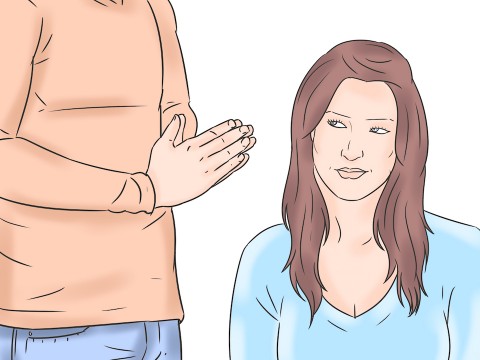
"Guys, we don't forbid you, we guarantee it to you"
Not all of his speech was included in the published video of Prigozhin's speech, says a BBC interlocutor familiar with the situation in IK-6. In addition, he draws attention to the fact that the “PMC representative” calls desertion, looting, drugs and alcohol mortal sins, although judging by information from other colonies, without a camera, a man who looks like Prigozhin said differently: “In the media, when they reported about his visits to other colonies, [it was not called mortal sins], it was, on the contrary, a selling point like this: they say, guys, we don’t forbid you, we guarantee it to you, well, except for desertion, of course.
- "Wagner PMC" began a wide recruitment of mercenaries for the war with Ukraine. They take everyone
The BBC interlocutor also claims that the recording of the meeting with prisoners published this week was filmed by a man who came with a "PMC representative" to the colony. At the meeting, "Prigozhin" himself introduced him as a rear guard for a PMC. “Eyewitnesses recall that this fraer put his iPhone in his breast pocket, from where, apparently, the camera looked out successfully,” says the BBC interlocutor with acquaintances in IK-6. “With the dispatch of mercenaries, everything goes on as usual, there is a rumor that PMCs leaked this topic themselves, choosing advertising phrases. Also, for example, they film successful convicts at the front against the backdrop of good everyday life and cleaned weapons in order to tempt people in the zones for new contract receipts."
At the meeting, "Prigozhin" himself introduced him as a rear guard for a PMC. “Eyewitnesses recall that this fraer put his iPhone in his breast pocket, from where, apparently, the camera looked out successfully,” says the BBC interlocutor with acquaintances in IK-6. “With the dispatch of mercenaries, everything goes on as usual, there is a rumor that PMCs leaked this topic themselves, choosing advertising phrases. Also, for example, they film successful convicts at the front against the backdrop of good everyday life and cleaned weapons in order to tempt people in the zones for new contract receipts."
The author of the photo, Mikhail Svetlov/Getty Images
Photo caption, Evgeny Prigozhin has recently increased his media activity in a video from the colony, "he looks monstrously like Yevgeny Viktorovich [Prigozhin]": "Judging by his rhetoric, he is somehow involved in the implementation of the tasks of the special operation, and it seems that he is successfully doing this. " On the evening of September 15, the press service on its page on VKontakte published the words that it attributes to the businessman himself.
" On the evening of September 15, the press service on its page on VKontakte published the words that it attributes to the businessman himself.
"Certainly, if I were a prisoner, I would dream of joining this friendly team in order to be able not only to redeem my debt to the Motherland, but also to repay it with interest. And the last remark: those who do not want PMCs to fight , prisoners, who talk about this topic, who don’t want to do anything and, in principle, who don’t like this topic, send your children to the front. Either PMCs and convicts, or your children, decide for yourself."
The appearance of a video with a speech by a person who looks like Prigozhin can probably be connected with the increased activity of the Concorde owner himself in recent years. This activity in itself is no less interesting than the fiery speech of "Putin's cook" in front of the prisoners.
At the end of August, at the memorial service for Darya Dugina, Prigozhin gave a video commentary to the Federal News Agency (FAN), which, according to US authorities and numerous journalistic investigations, is also sponsored by the businessman.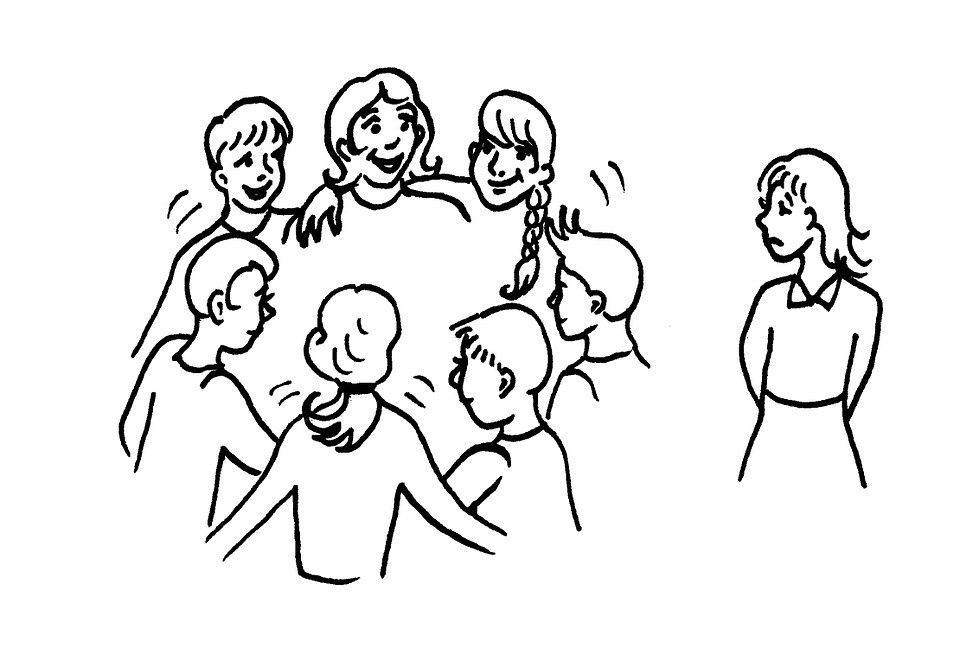 Before that, he did not give video interviews, preferring to demonstrate his controversial humor in the telegram channel of the press service. It is the FAN’s comment that makes it possible to believe that Prigozhin is also on the recording from the colony - the person who spoke at IK-6 in Mari El has the same appearance, the same timbre of voice and manner of speaking as businessman Prigozhin.
Before that, he did not give video interviews, preferring to demonstrate his controversial humor in the telegram channel of the press service. It is the FAN’s comment that makes it possible to believe that Prigozhin is also on the recording from the colony - the person who spoke at IK-6 in Mari El has the same appearance, the same timbre of voice and manner of speaking as businessman Prigozhin.
A little earlier, the press service of Concord released a photograph showing Prigozhin respectfully laying flowers on the grave of a prisoner who died in Ukraine. Everywhere - in the video from the colony, in the FAN commentary and in the picture at the grave - an award similar to the star of the hero of Russia is visible on the chest of a person. This summer, there were rumors on Telegram channels that Putin handed it to Prigozhin by a closed decree, and when Dmitry Peskov was asked to comment on this information, he evasively remarked that "we publish all open decrees."
Prigozhin's increased public activity coincided with the criminal case initiated under the article "Fraud" against two employees of the St. Petersburg edition of "People's News" - Evgeny Moskvin and Alexei Slobodenyuk. Narodnye Novosti and FAN are part of the same Patriot holding, whose Board of Trustees is officially headed by Prigozhin.
Petersburg edition of "People's News" - Evgeny Moskvin and Alexei Slobodenyuk. Narodnye Novosti and FAN are part of the same Patriot holding, whose Board of Trustees is officially headed by Prigozhin.
Prigozhin also does not have the warmest relationship with Shoigu, sources told the BBC in the environment of the St. Petersburg businessman.
"Nobody is waiting for someone at home. Many are being run for money"
Since the beginning of summer, the "Wagnerites" have traveled around 35 colonies in the European part of Russia, except for the Kaliningrad region, Chechnya and Dagestan, Olga told the BBC Podoplelov from "Seated Rus'". The most eastern regions where recruiters have reached, according to data that the fund considers confirmed, are Tatarstan and the Kirov region, she says.
You need JavaScript enabled to view this content, or use a different browser
Video caption, How the private military company Wagner works. Interview with a mercenary
Interview with a mercenary
At least 7,000 prisoners have already been recruited for the war, said Olga Romanova, head of Rus Seated. On average, 200 prisoners are recruited in this way for each colony. Podoplelova believes that this is realistic, given that Wagner representatives have visited some colonies more than once.
The lawyer representing the interests of the prisoner recruited by the PMC agrees with this assessment. In each visit known to him, recruiters recruited at least 30 and up to 100 prisoners.
A BBC interlocutor from Tverskaya IK-10 confirms that Wagner PMC representatives actually visit the colonies: “They say you sign a contract from six months to a year. a lot of money, full provision, a uniform to issue, supposedly there are no problems with food. But in fact, information is coming in that in terms of provision, everything is much worse. If you find something to eat, it’s good. But no, well, no.”
According to him, those who sign the contract are apparently being transferred to a colony in the Rostov region - there is no specific information about which ones. This is a transit zone where the prisoners are already directly entering into contracts, says the BBC interlocutor. From there, the prisoners are taken to the points where they are supposed to fight. “Then, if you survived, they promise that you will go home. Basically, those who have long sentences agree. Nobody is waiting for someone at home. “The payments are rather big, I know a person who is in the hospital now, he was paid,” the source told the BBC.
This is a transit zone where the prisoners are already directly entering into contracts, says the BBC interlocutor. From there, the prisoners are taken to the points where they are supposed to fight. “Then, if you survived, they promise that you will go home. Basically, those who have long sentences agree. Nobody is waiting for someone at home. “The payments are rather big, I know a person who is in the hospital now, he was paid,” the source told the BBC.
It is not clear what is happening in the border colony and on what grounds prisoners are taken from there to Ukraine, the lawyer says. He recalls that colonies in the areas bordering Ukraine were recently closed for repairs. In such cases, the personnel in the colony are disbanded - it is possible that "after repair" these colonies were sent to manage "whoever is needed."
"It was possible to amend the legislation to legalize the sending of prisoners to the front, but now just no one thinks about it, since the situation at the front forces us to make urgent decisions," says the lawyer - the source of the BBC.
"If they realize that they were deceived, they can turn their weapons in the other direction"
In addition to the salary at the level of other PMC members, Prigozhin promises the prisoners a pardon in six months with the removal of a criminal record. It is still impossible to verify the reality of the promises - six months have not yet expired since the start of mass recruitment.
According to the Constitution, the president can really pardon anyone, and not in public. As the Supreme Court has repeatedly acknowledged, the pardon procedure is not governed by criminal or criminal procedure law and is "carried out outside of justice". At the same time, even if the pardon decree refers not to one, but to several convicts, it is not considered a normative legal act, contains confidential information and therefore should not be published, the Supreme Court believes.
Consequently, the names of those who will be pardoned by the President for agreeing to fight in Ukraine will not be made public, and their number will only be known if they are included in the statistical reports.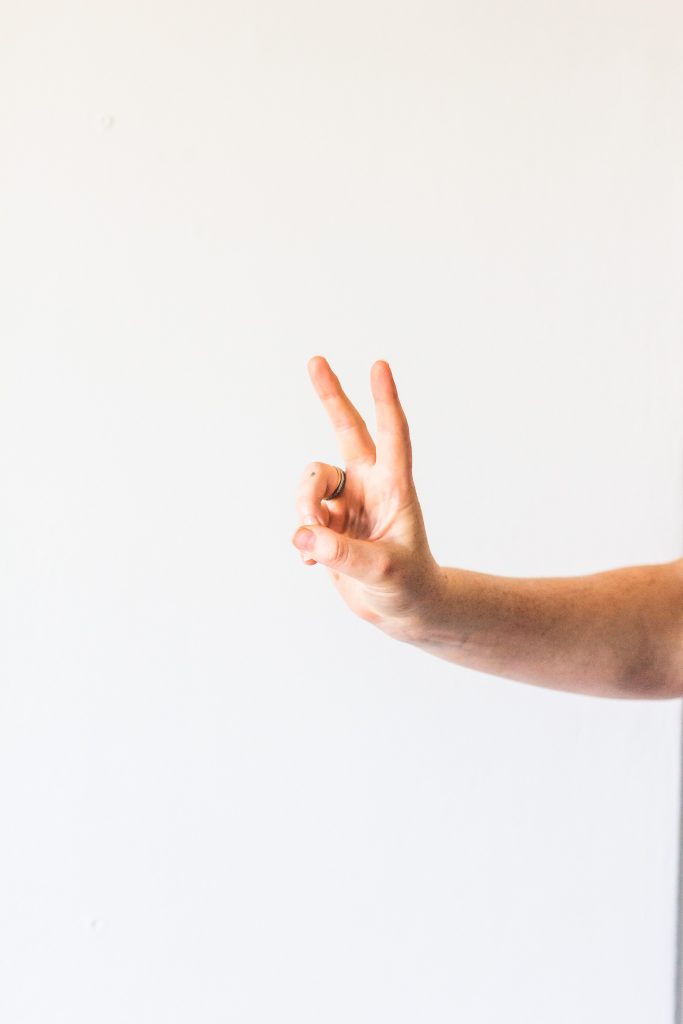
It is not known when the first fighters-prisoners can pardon - there is no data on how the "Wagnerites" are going to count these six months. The lawyer, who spoke to the BBC on condition of anonymity, is confident that those recruited will face surprises: "For example, only days spent in combat will count, and sitting in a trench will not count." Thus, the lawyer believes, the term can actually double, and there will be almost no chance to survive during this time. Moreover, one can die not only in battle, but also for "any disobedience" [to commanders], the lawyer argues. Prigozhin, in the part of his speech in the colony that was caught on video, promised to be shot on the spot for desertion.
The fact that there was no one to pardon, the authorities themselves may be interested, the source of the BBC continues: "It is dangerous to let go of murderers, maniacs and cannibals." But if in a few months, when the promised six months expire, the prisoners survive and are not released, the authorities face serious problems: "If they realize that they were deceived, they can turn their weapons in the other direction. "
"
If some of the convicts manage to live to see a pardon, problems, given their combat experience and the experience of imprisonment, may already arise among the civilian population, Podoplelova from Sitting Rus' believes: "There is a high probability that the level of violence will increase significantly , multiple".
Problems may arise for the authorities if relatives begin to massively seek to find out the whereabouts of the recruited prisoners, as well as the causes of death, says a lawyer who represents the interests of a prisoner recruited by the PMC.
Cases of active attempts to find out the new location of the prisoner, as well as attempts to return him back, are still few. For the very fact of filing these appeals, relatives can be held liable for fakes and discrediting the Armed Forces of the Russian Federation. And when trying to prosecute recruiters and employees of the Federal Penitentiary Service who contribute to the recruitment of prisoners to the front, there is a danger of bringing the prisoners themselves for escaping from the colony (Article 313 of the Criminal Code of the Russian Federation), explains Podoplelova.
More questions are related to the legalization of the death of convicts in the war. Posthumous pardon is not provided for by the Constitution and laws, since it is an act of mercy aimed at the release or mitigation of the fate of the convicted person. At the same time, the current pardon procedure provides for the presence of a health certificate in the case, said the lawyer, the source of the BBC. And in the event of the death of a convict, a certificate of the investigation of death should remain in his personal file, according to the instructions approved by the Ministry of Justice.
Speaking in a colony in Mari El, a man resembling Prigozhin promised prisoners in the event of death that he would pay compensation to his relatives and deliver the body to the address indicated by the fighter. In the absence of a will, he guaranteed burial at the Wagner PMC base in Goryachiy Klyuch "near the chapel".
On October 8, 2021, the Russian authorities entered the BBC correspondent Andrey Zakharov into the register of media outlets acting as a foreign agent.









